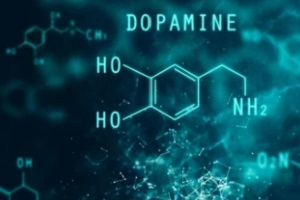 Many individuals around the world suffer from issues related to alcoholism. While the vast majority of those individuals turn to alcohol for different reasons, many share one very unique common denominator which is, mental illness.
Many individuals around the world suffer from issues related to alcoholism. While the vast majority of those individuals turn to alcohol for different reasons, many share one very unique common denominator which is, mental illness.
This leads to the consideration of whether alcoholism is a mental illness in and of itself, or are those who struggle with mental illness more likely to turn to alcohol as a coping mechanism for their struggles and issues. In this brief article, we will look at both alcoholism and mental illness in order to gain a better sense of understanding why the two are so often linked.
Is Alcoholism a Mental Illness?
In many cases the answer is, yes, alcoholism is most certainly a mental illness for which the patient should receive rehabilitation therapy. In other cases, the answer is no, alcoholism is not a mental illness, but it has become a crutch that is used to cope with mental illness. It is important to distinguish between alcoholism and occasionally having a drink when faced with an issue.
An addiction to alcohol is an incredibly complex disease associated with a number of various social, biological and psychological components. Similar to other chronic illnesses, alcohol addiction tends to involve a seemingly endless cycle of relapse, remission, relapse and remission.
A majority of individuals are able to have a drink for social or personal purposes, even if they are stressed out or angry about something. Those individuals can even over-indulge on a few occasions without the risk of alcohol creating an issue in their lives. For others, however, alcohol can quickly become a serious problem.
When using alcohol as a coping mechanism, mental and emotional symptoms will appear and last significantly longer than the physical symptoms. Alcohol will slowly but surely begin to deteriorate the individual beginning with the core of their mental well-being, often before they are even aware that it is happening.
It is important to account for this because if the mental and/or behavioral symptoms are not quickly and adequately treated, the long term effects of alcohol abuse will ultimately lead to a number of physical complications. Physical complications include chronic brain deterioration, cirrhosis of the liver, pancreatitis, heart disease and cancer. Many of the complications can lead to death.
What Leads to Alcoholism?
Although there is no single answer as to the cause of alcohol dependency, there are a number of risk factors that contribute, or are otherwise related to the addiction. Some of these factors may include social influences, age, biology, genetics and environment. One common trait appearing in alcoholism is connected to those who have lower levels of dopamine in their brains.
 Dopamine is a chemical messenger that, in addition to many other roles, carries a “feel good” signal between brain cells. Alcohol boosts those “feel good” signals in the brain, which triggers the desire for more alcohol to recapture or sustain the feelings.
Dopamine is a chemical messenger that, in addition to many other roles, carries a “feel good” signal between brain cells. Alcohol boosts those “feel good” signals in the brain, which triggers the desire for more alcohol to recapture or sustain the feelings.
One of the most common mental health issues that has been shown to be an underlying factor in alcoholism is depression. This is also linked to the “feel good” receptors. When an individual’s mental state is not one of feeling positive about their life or current situation, they are more likely to seek that feeling in other ways. Alcohol is one of the quickest, most affordable and easiest to acquire methods for achieving that state of being; unfortunately the feeling is short lived.
After alcohol consumption the chemical balance of the brain, relative to the receptors for emotions, drops below the baseline which triggers a deeper sensation of the negative feelings. This creates a desire to consume more alcohol to improve the mood, the use of which will drop the chemical balance again and repeat the cycle. Recovery from the abuse of alcohol must address the chemical imbalances created by the cycle of use.
Breaking the Cycle
The chemistry of the brain, for those with an alcohol addiction, is not a choice, it is the biological composition of the brain. Helping those addicted to alcohol to understand the chemical imbalance in the brain related to their abuse of alcohol provides an opening for their recovery, but the choice to pursue recovery must be made independently by and for the individual. A strong and wide support system, however, is critical to the success of their recovery.
When you are ready to help yourself, or a loved one, take the steps to break the cycle of alcohol dependency, Aquila Recovery Clinic is ready to provide assistance for your specific situation.
At Aquila Recovery Clinic, we will address the questions and concerns that you may have regarding the entire recovery process. We will be with you and your loved ones every step of the way on the journey to healing and recovery.
